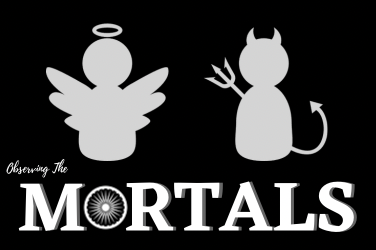Introduction: A social institution is an organised forms of customs ,dogmas, rituals, procedures & relations – organised around the preservation of a basic societal value. Each social institution depends on certain established rules and usages which are recognised & accepted by the members of the society. These rules and regulations govern the relations b/w individuals and groups.
Definition of social institution
- Ginsberg defines social institutions as definite & sanctioned forms or modes of relationships between social beings in respect to one another outing to or to some extent object.
- Mclver defined an institution as the, “established forms or conditions of procedure characteristic of group activity.”
Examples of social institutions : Marriage, family, education, religion etc. are ex of social institutions.
Characteristics of (Social) Institutions:
- Every institution has some definite objectives or goals which are to be achieved by the members of the institution.
- Every institution is governed by certain rules and regulations which are equally binding on all members of the institution.
- There are certain definite procedures followed in the work of the institution.
- The continuity of the institution depends upon the collective endeavour of its members.
- Institutions are one of the means of controlling people in society and compared to other means of social control, institutions are comparatively stable.
- Every institution in a society is formed primarily to fulfil the needs of the individuals of the society.
Types of Social institutions
- Primary Social institution : Sociologists often reserve the term ‘institution’ to describe normative systems that operate in five basic areas of life, which may be designated as the primary institutions.
- In determining kinship;
- In providing for the legitimate use of power;
- In regulating the distribution of goods and services;
- In transmitting knowledge from one generation to the next; and
- In regulating our relation to the supernatural.
These five basic institutions are c/l the family, govt/ state,economy, education & religion respectively.
- Secondary Social institutions: derived from each of these five primary social institutions. For ex:
- 2° institutions derived from family : marriage, divorce, monogamy, polygamy etc.
- 2° institutions derived from religion : temple, mosque, church etc.
- 2° institutions derived from education : school, college etc.
- 2° institutions derived from state : democracy, Parliament etc.
- 2° institutions derived from economy : trade and commerce, Immovable and movable property etc.
Importance of Social institutions
- These are media for proper working culture in society and passing on of culture through generations.
- Medium of passing on of morals, ideals, knowledge and behaviours etc. from one generation to other.
- Medium of control of human behaviour.
- Guide to younger generation to solve their problems.
Conclusion: A social institution never becomes extinct. New institutional rules and regulations may replace the old,but the institution goes on.




